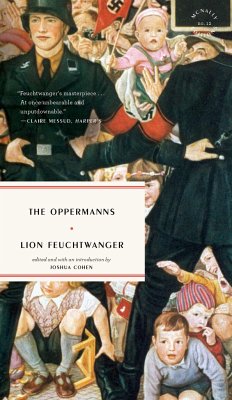"In the foment of Weimar-era Berlin, the Oppermann brothers represent tradition and stability. One brother oversees the furniture chain founded by their grandfather, one is an eminent surgeon, one a respected critic. They are rich, cultured, liberal, and public spirited, proud inheritors of the German enlightenment. They don't see Hitler as a threat. Then, to their horror, the Nazis come to power, and the Oppermanns and their children are faced with the terrible decision of whether to adapt - if they can - flee, or try to fight. Written in 1933, nearly in real time, The Oppermanns captures the day-to-day vertigo of watching a liberal democracy fall apart. As Joshua Cohen writes in his introduction to this new edition, it is "one of the last masterpieces of German-Jewish culture." Prescient and chilling, it has lost none of its power today."--
Hinweis: Dieser Artikel kann nur an eine deutsche Lieferadresse ausgeliefert werden.
Hinweis: Dieser Artikel kann nur an eine deutsche Lieferadresse ausgeliefert werden.








